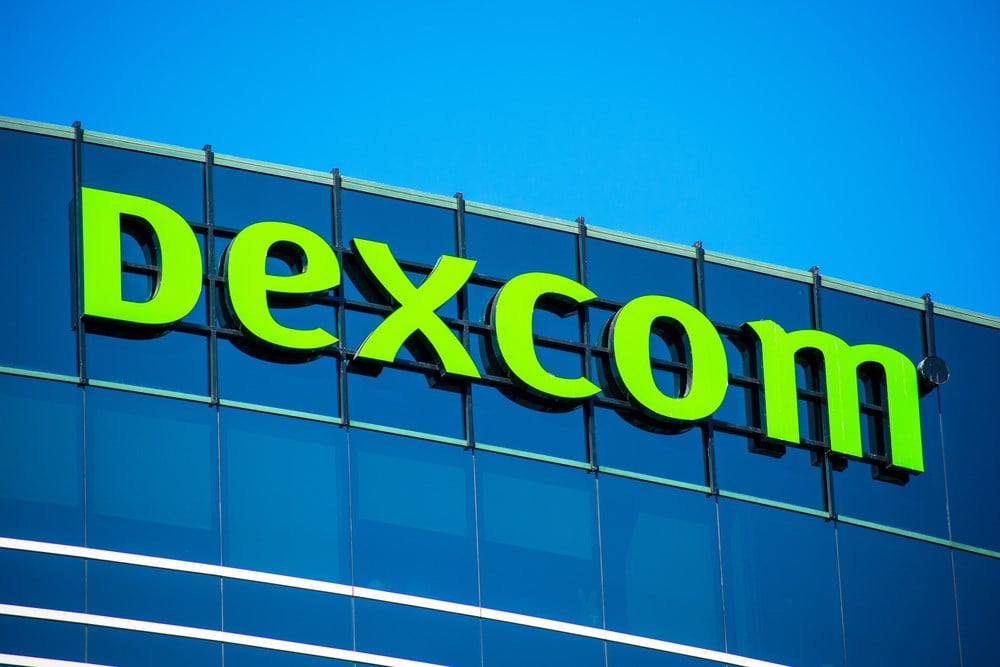 Glucose-monitor maker DexCom Inc. (NASDAQ: DXCM) was among the top three gainers within the healthcare sector on July 28, advancing 2.33% in the season after gapping higher at the open.
Glucose-monitor maker DexCom Inc. (NASDAQ: DXCM) was among the top three gainers within the healthcare sector on July 28, advancing 2.33% in the season after gapping higher at the open.
The company reported second-quarter results that came in ahead of Wall Street’s expectations. Earnings were 34 cents a share on revenue of $871.3 million, increases of 100% and 25%, respectively, over last year’s second quarter.
U.S. revenue was up 21%, but international revenue growth was even stronger, at 38%. Domestic business still constitutes the bulk of revenue, at 71%.
DexCom specializes in continuous glucose monitoring (CGM) systems for people with diabetes. Its CGM devices allow users to track their glucose levels in real-time, giving patients valuable data to manage their conditions more effectively and make better decisions about their insulin dosing and dietary choices.
Rivals in the space include Abbott Laboratories (NYSE: ABT) and Medtronic plc (NYSE: MDT). The company tailors its software to address different needs for various patients’ glucose control.
Reducing Costs & Patient Admissions
In a June investors' day presentation, DexCom said its CGM has demonstrated a 35% reduction in inpatient admissions, an approximately 50% reduction in inpatient visits, and a 14% reduction in outpatient visit costs.
The company also said that it sees plenty of potential with domestic growth, but suggested the opportunity for international market share was even greater. As is the case with the U.S. market, international growth is dependent on insurance reimbursements.
So far, it’s received broad reimbursement for its G-series of monitors, and tiered or limited reimbursement for other products.
In the U.S., according to the company, Dexcom is the most-covered CGM with the lowest out-of-pocket expenses.
In 2024, the company aims to launch a glucose-sensing product designed for people with Type 2 diabetes who are not on insulin.
Boosted Full-Year Revenue Guidance
In its second-quarter report, DexCom boosted its full-year guidance. It expects revenue between $3.5 billion and $3.55 billion, an increase of 21% at the midpoint. Analysts’ forecasts called for revenue of $3.5 billion, so investors were cheered by the slightly better-than-expected outlook.
In its investors’ day presentation, DexCom guided toward $4 billion to $4.5 billion in revenue for 2024, and $4.6 billion to $5.1 billion for 2025.
Wall Street expects the company to grow earnings by 40% this year, to $1.22 a share, with earnings growth of 30% next year, to $1.58 per share.
Immediately after the second-quarter report, five analysts boosted their price targets on the stock, as you can see using MarketBeat’s DexCom analyst ratings. The consensus view is “moderate buy,” with a price target of $138.50, an upside of 4.62%.
For now, it appears that investors and analysts are pleased with the company’s growth prospects, although price increases have been relatively slow and steady, rather than explosive.
Anticipating Further Improvements
In a note following the earnings report, Morningstar analyst Debbie Wang wrote that Morningstar’s Debbie Wang wrote, “This quarter was a big step in the right direction, and we anticipate further improvements through 2024 as the manufacturing of G7 reaches scale.”
The company has been ramping up its production capabilities. It’s scaling production for its G7 model in San Diego and Mesa, Arizona, as well as opening production facilities in Ireland and Malaysia.
The stock has advanced 9.10% in the past three months and 16.90% year-to-date. On a one-year basis, shares are up 52.18%.
In the post-earnings price action, after the stock gapped up 4.84% in the first five minutes, it made further advances in the session’s first 25 minutes, then began selling off, ending the day with a gain of 2.33%, without closing the gap.
On July 28, the stock cleared a short area of consolidation above the 50-day moving average before reversing lower. It remains in a buy zone, as long as it doesn’t decline below its 50-day average, or unless it rallies more than 5% above its July 28 high of $139.55.






